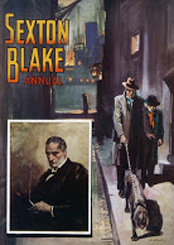Kildare was a regular writer of tales for newspapers and magazines, contributing to The Saturday Evening Post, Pearson's, Gunter's, The Smart Set, The Grey Goose, The Blue Mule, Cosmopolitan, People's, Red Book and the New York Times. There seemed to be no break between 1904 and 1908, after which he disappeared.
Kildare was married to Leito Kildare and the two had a daughter, Lowen Loris Margherita Kildare, born in New York on 27 November 1906.
On 1 September 1908, Kildare's play "The Regeneration" opened on Broadway. Co-written with Walter Hackett, it retold in fictional form the story of My Mamie Rose in four acts, with Arnold Daly in the role of Owen Conway and Jessie Izett as Marie Deering, the doomed lovers. Kildare had begun work on the play almost a year earlier, working closely at first with Daly. It was enthusiastically reviewed in the New York Times, whose critic opined: "Judging by the many rounds of applause he [Daly] and his company received and the numerous curtain calls he was compelled to answer, he scored a success and his play bids fair to have a long run."
Not all reviews were as generous. J. Chris Westgate, in Staging the Slums, Slumming the Stage, describes how some reviews were hostile to the idea of romance across the classes, quoting a review in Theatre as saying "the introduction of the element of love is fatal to the full effectiveness of the play." One reviewer went even further, saying that "The drama implies what the dramatist dare not say—that their hero will one day marry his benefactress. It at least assumes that his benefactress loved him. This implied conclusion is preposterous ... the whole scheme is false to reasonable probability and incompatible with human nature."
The play ran for only a few weeks and closed in October 1908. The following month, papers carried the news that, on November 21, Kildare had collapsed from nerves, the failure of the play being given as chief reason. According to the New York Times, an angry Mrs. Kildare, "standing in their little flat last night at 60 West 101st Street, with her hand resting on his typewriter, where he had done all his recent work, and with trembling lips and eyes dimmed with tears," she declared "a cruel injustice" had been done to her and her husband by a report that said she had had him arrested for drinking.
"I did not have him arrested," she said. "Mr. Kildare is ill because of the failure of 'The Regeneration,' which was offered early in the present season at Wallack's Theatre. It was not played as Mr. Kildare wrote it. He saw it only once and was so furious with Arnold Daly for the changes in it that he wanted to fight him. It was all we could do to keep him from attacking the actor. He became morose, morbid, and frequently talked of suicide. Finally he was attacked by the nervous collapse from which he is now suffering.Further reports revealed that Kildare had been committed to the psychopathic ward in Bellevue Hospital by Magistrate Walsh in the West Side Court. According to Dr. M. S. Gregory, a few months' rest in the sanitarium would restore Kildare's mental faculties, which, he said, were seriously deranged. He was transferred to Bloomingdale on November 30.
Mr. Kildare had the present acute attack of aphasia and nervous collapse on Sunday night. He was unable to speak, and soon became unconscious. Brandy was given him, but he stayed in a stupor. On account of his great weight—nearly 250 pounds—it was impossible to carry him upstairs, so he was sent to the J. Hood Wright Hospital in an ambulance.
"I have no idea why he was sent to the police court," said Mrs. Kildare. "But I had him sent to Bellevue because the doctors said that was the best place for him. He is bitterly opposed to going to Bloomingdale, but the physicians say he will not recover in a private sanitarium, where he can do as he pleases, so I see no help for it but for him to go there. He does not drink, except a little occasionally, and his present trouble is due solely to his worry over the failure of 'The Regeneration,' which is his dramatization of 'My Mamie Rose,' the staging, indeed, of his own sad, strange life.
Little more was heard of Kildare for the next two years. On 2 January 1911, a report appeared on the front page of the Washington Post:
Many of the friends of Owen Kildare, author and playwright, who rose from bartender in a Bowery dive to be one of the most successful writers of the time, will be surprised to learn that since his incarceration in the State hospital for the insane, on Wards Island, his wife, who was the beautiful Leita Russells Bogardus, has had her marriage to him annulled, and is now the wife of Lieut. Comdr. Charles A. Adams, U.S.N., retired.Where indeed? Charles Albert Adams, born in New York on 28 May 1846, had served with the Royal Navy since 1863 and had been a Commander in 1901-03 before retiring on Boxing Day, 26 December 1903.
In spite of the severing of the legal ties that bound her to Kildare and her marriage to Comdr. Adams, the young woman still retains so strong an interest in her first husband that she and her young daughter visit him every other day at the institution where he is confined. Mrs. Adams says that Owen Kildare knows of, and approves of, the course she has taken.
Mrs. Adams declined to say when or where she married Comdr. Adams.
The pair had, in fact, married in Canada—in Windsor, Ontario—on 2 May 1910, the marriage certificate stating that their reason was to avoid publicity for the marriage; a more likely reason was that the certificate described Leita Kildare as a widow, which she was most certainly not. Adams was 63, whilst Leita gave her age as 23, implying she was born in December 1886.
The New York Times later reported: "Late last year his wife, known before their marriage to magazine readers as Leita Russell, but whose full name was Leita Russell Bogartus, went to the town in Massachusetts where they had been married and obtained an annulment." (New York Times, 7 February 1911)
In 1910, Lowen Kildare was aged only 3. She was registered as a boarder with Edwin H. Bailey and his wife, Mary, in Howell Village, Livingston, Michigan. At least, this is the only Lowen Kildare to be found on the US census records whose details match what is known about Owen and Leita's daughter. One interesting detail given is that, whilst Lowen and her mother were both born in New York, her father is listed as being Russian.
Shortly after the notice about Leita Kildare Adams appeared in the Washington Post, news broke about the death of her former husband. The New York Times carried the news on its front page: "KILDARE, WRITER, DEAD OF PARESIS". "The Kipling of the Bowery" had passed away on the night of Saturday, 4 February 1911, of paresis (partial paralysis). He had been in a good condition for most of the day, which had included a visit from his former wife, with whom he had taken a long walk along the paths about the hospital; he had also walked her as far as the ferry when it came for her to leave. But, shortly before 10:30 pm, a nurse heard a groan from his room. Hurrying in, she found him in convulsions. He died in two of three minutes of the first seizure.
It was following his death that reports arose that Kildare had suffered a fall ahead of his becoming a patient in the Manhattan State Hospital on Ward's Island. Whilst some reported that his sudden collapse was ascribed to the failure of his play 'The Regeneration', others reported that he had become "violently insane three years ago after falling down the stairs at the Times Square Subway station." (Urbana Daily Courier, 7 February 1911).
Kildare had written little whilst in hospital. According to the New York Times:
Kildare took an interest in many of the patients. To some who were without family or friends to visit them, he was the only source of cheer. He often spoke of writing stories while he was on Ward's Island, and would start for his room, as if seized with the desire to put the idea on paper. He did write sometimes in a desultory fashion, the doctor's say, but the work was confused and fragmentary.Leita Kildare Adams completed the last book Kildare had started, which became his fifth and final title. However, this was not the final surprise in the story of Owen Kildare... as we shall see tomorrow.














































No comments:
Post a Comment